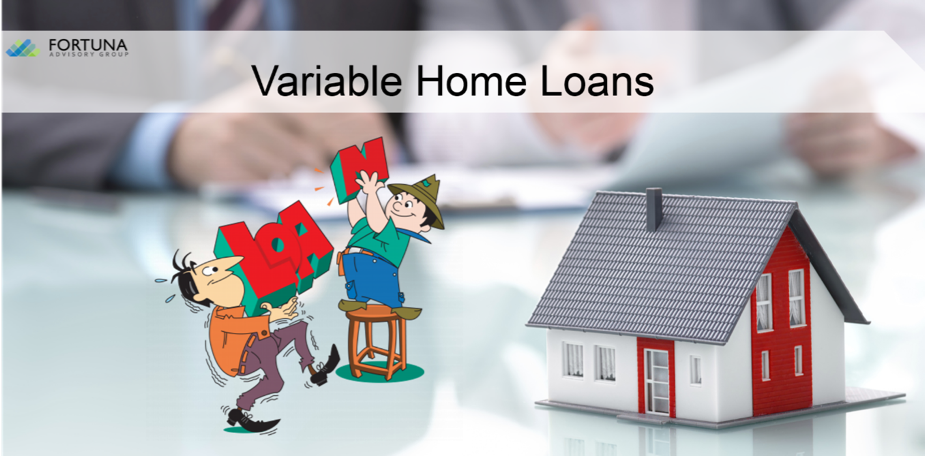When considering a home loan, you need to decide on the type of loan to apply for. Because of their flexibility and low rates when compared to other types of mortgage products, many people opt for variable loans. So, what are these variable home loans all about – is this type of loan right for you?
What is a variable home loan?
With a variable home loan, your interest rate will change, rather than being fixed (as in a fixed interest rate loan). These interest rate changes can cause your repayment amount to move up or down and can vary based on different factors.
 Your lender will take prevailing market interest rates, the RBA’s official cash rate, and their own internal business decisions into account when determining what rate to set.
Your lender will take prevailing market interest rates, the RBA’s official cash rate, and their own internal business decisions into account when determining what rate to set.
When your rate increases, your repayment amount will go up. When rates go down, you’ll be required to give less each repayment period.
The pros and cons of variable rate loans
There are advantages and disadvantages to having a variable rate loan. They may be cheaper than the current fixed rate loans being offered, and if you plan on using all the features your variable rate home loan has, you may want to choose this type of loan. On the other hand, if you’re after stability and have a very tight budget, you may be better served by a fixed rate loan.
Pros of variable rate loans
- Lots of features – Variable rate loans tend to have features like a free offset account, which you can use to pay down your loan faster, or unlimited redraws, which allows you to access emergency funds if you’re ahead on your mortgage.
- Extra repayments – One of the most important benefits of a variable rate loan is the ability to make unlimited extra repayments. Paying more on your mortgage every month or making lump sum deposits can help you save on interest and pay off your home loan faster.
- Easier to refinance – If you plan on refinancing in the next few years, variable loans are a good idea. When you have a variable rate home loan you can easily switch to a different loan when you want to get a mortgage with a cheaper rate or if your needs change. With a fixed rate loan, you’ll usually have to pay high fees to leave the loan.
Cons of variable rate loans
- Difficult to budget– When your rate increases, unless you have a lot of flexibility in your household budget, you’ll have to adjust other expenses in order to make the higher repayments. This can make it a challenge to plan ahead financially.
- Stress of a changing rate– If your rate increases a lot, this can make it difficult to keep up with your mortgage repayments.
What about a split loan?
 Some people are not concerned about committing entirely to either a fixed loan or a variable loan. If this is you, you might want to look into a split loan. This helps borrowers manage the potential of rate increases while also having the ability to pay down their loan faster with early repayments. With a split loan, even if the variable portion of your loan increases, the fixed portion of your loan will stay the same.
Some people are not concerned about committing entirely to either a fixed loan or a variable loan. If this is you, you might want to look into a split loan. This helps borrowers manage the potential of rate increases while also having the ability to pay down their loan faster with early repayments. With a split loan, even if the variable portion of your loan increases, the fixed portion of your loan will stay the same.
Should you get a variable rate loan?
Variable home loans are available to anyone borrowing money for property. Whether you are considering a residential home loan, a loan for an investment property, or you want to refinance an existing loan, a variable home loan may help you save money and make it easier to move toward your other financial goals.
How do you decide?
 Home loans are complicated and finding the right one is a challenge. You need to consider the features that you want, the interest rate you can afford, as well as loan fees. Fortuna Advisory Group can help you sort through the options available to you and find the one that works for your financial lifestyle, whether you’re looking to buy a home, purchase an investment property, or refinance a loan you already have. Contact us today to learn more.
Home loans are complicated and finding the right one is a challenge. You need to consider the features that you want, the interest rate you can afford, as well as loan fees. Fortuna Advisory Group can help you sort through the options available to you and find the one that works for your financial lifestyle, whether you’re looking to buy a home, purchase an investment property, or refinance a loan you already have. Contact us today to learn more.



